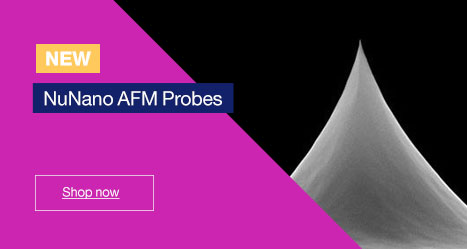An electron microscope, when equipped with a backscattered electron detector, has the capability to produce images in which the contrast is controlled by differences in atomic number (Z) across the specimen. Four reference specimens are now available that are suitable for testing the atomic number contrast performance of a backscattered electron detection system.
Each of the reference specimens consists of two high purity elements that have an atomic number difference of 1. They are in the form of two wires embedded side by side in a contrasting matrix.
The specimens are available as a single mount either 3mm or 5mm diameter brass or aluminium tubes or alternatively can be incorporated into a block of standards.
Visual shows: Electron micrograph of the nickel/copper backscattered electron reference specimen. BSE image at low magnification. The contrast difference between the two wires is visible due to the atomic number difference between the nickel/copper.



